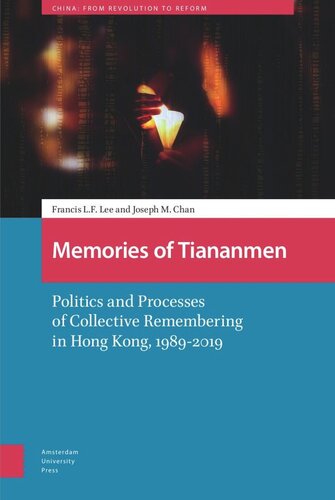

Most ebook files are in PDF format, so you can easily read them using various software such as Foxit Reader or directly on the Google Chrome browser.
Some ebook files are released by publishers in other formats such as .awz, .mobi, .epub, .fb2, etc. You may need to install specific software to read these formats on mobile/PC, such as Calibre.
Please read the tutorial at this link: https://ebookbell.com/faq
We offer FREE conversion to the popular formats you request; however, this may take some time. Therefore, right after payment, please email us, and we will try to provide the service as quickly as possible.
For some exceptional file formats or broken links (if any), please refrain from opening any disputes. Instead, email us first, and we will try to assist within a maximum of 6 hours.
EbookBell Team

0.0
0 reviewsThis book analyzes how collective memory regarding the 1989 Beijing student movement and the Tiananmen crackdown was produced, contested, sustained, and transformed in Hong Kong between 1989 and 2019. Drawing on data gathered through multiple sources such as news reports, digital media content, vigil onsite surveys, population surveys, and in-depth interviews with activists, rally participants, and other stakeholders, it identifies six key processes in the dynamics of social remembering: memory formation, memory mobilization, memory institutionalization, intergenerational transfer, memory repair, and memory balkanization. Memories of Tiananmen demonstrates how a socially dominant collective memory, even one the state finds politically irritable, can be generated and maintained through constant negotiation and efforts by a wide range of actors. While the book mainly focuses on the interplay between political changes and Tiananmen commemoration in the historical period within which the society enjoyed a significant degree of civil liberties, it also discusses how the trajectory of the collective memory may take a drastic turn as Hong Kong's autonomy is abridged. The book promises to be a key reference for anyone interested in collective memory studies, social movement research, political communication, and China and Hong Kong studies.